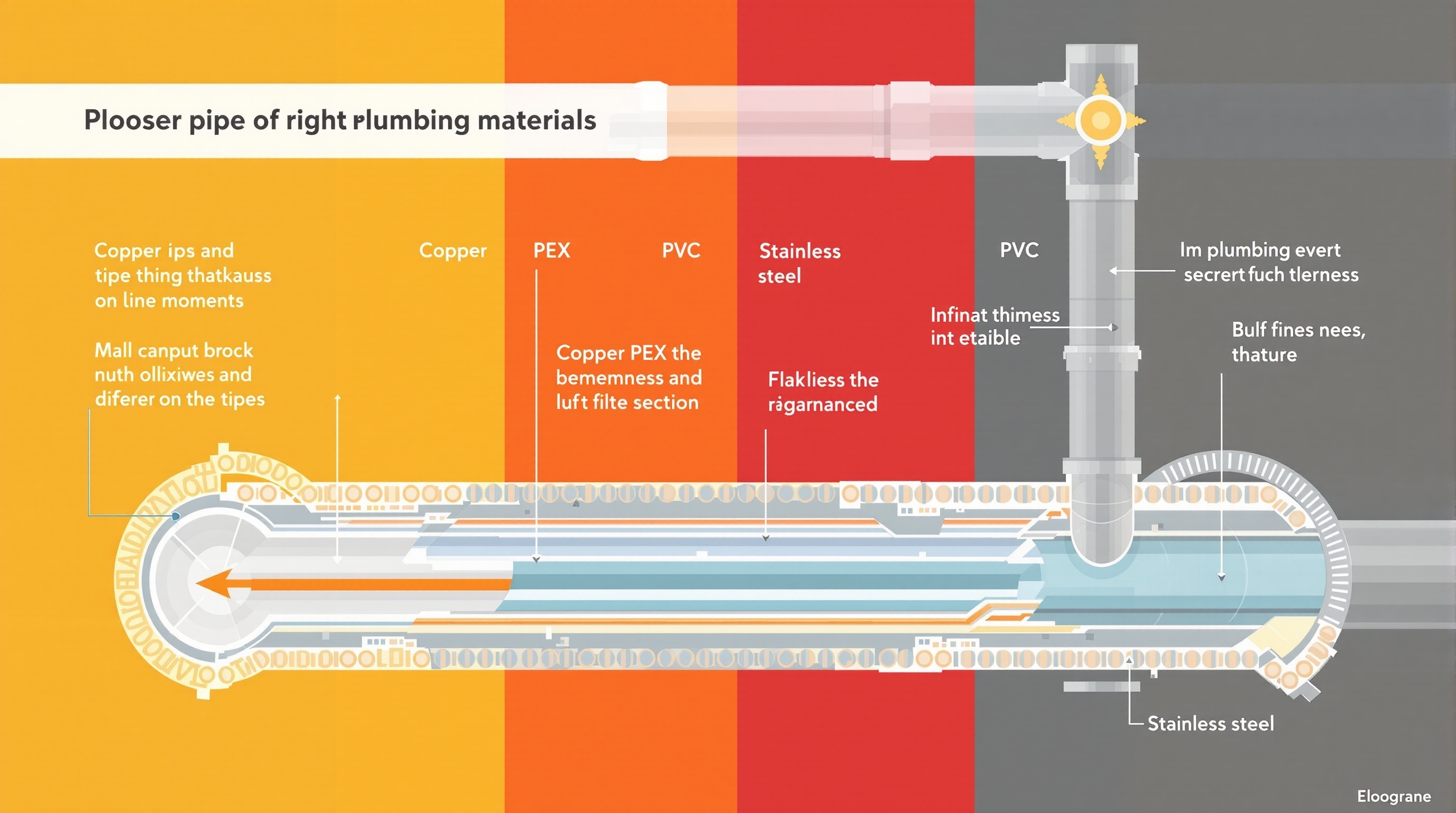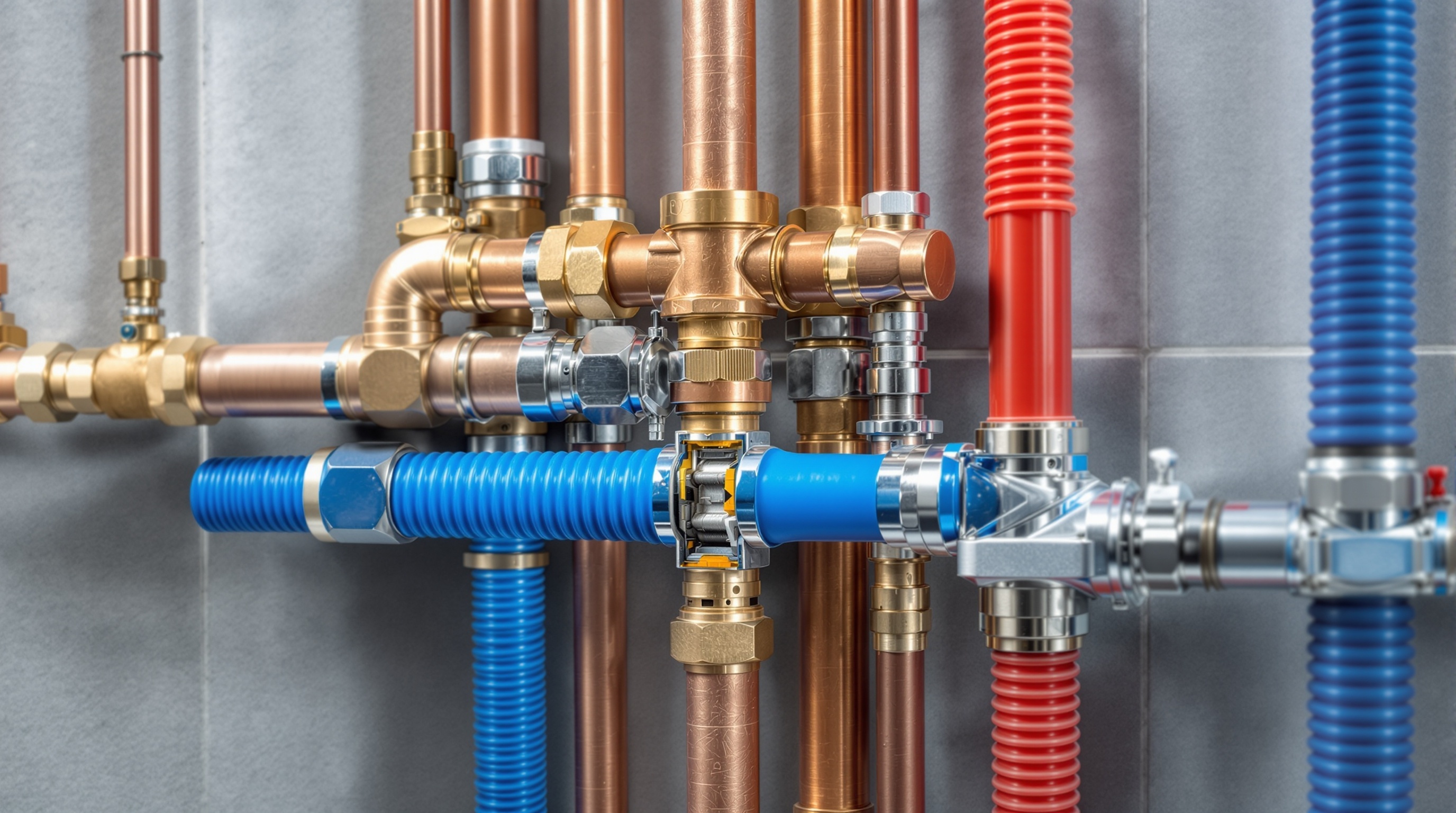Understanding the materials used in your home's plumbing system helps you make informed decisions about repairs, renovations, and upgrades. This guide explains the different metals and materials used for pipes in UK houses, their advantages, and which might be best for your property.
Copper Pipes: The Traditional Standard
Copper has been the most popular material for residential plumbing pipes in the UK for over 70 years. Its dominance comes from a combination of excellent properties that make it ideal for both hot and cold water systems.
Why Copper Remains Popular
According to the Copper Sustainability Partnership (CuSP), copper is used for water pipes due to its corrosion resistance, non-toxic antimicrobial properties, malleability, and long lifespan. These characteristics make copper particularly suitable for potable water systems.
Key Benefits of Copper Pipes:
- Durability: Typical lifespan of 50-80 years, with some installations lasting over 100 years
- Heat Resistance: Withstands high temperatures, suitable for hot water systems
- Antimicrobial Properties: Naturally inhibits bacterial growth
- Recyclable: 100% recyclable without loss of properties
- Corrosion Resistant: Develops protective patina over time
Types of Copper Pipe
Copper pipes are categorised into different types based on wall thickness:
- Type K: Thickest walls, used for underground services and areas requiring maximum durability
- Type L: Medium walls, commonly used for residential water distribution systems
- Type M: Thinnest walls, suitable for low-pressure applications and certain residential uses

Comparison of different plumbing pipe materials used in modern homes
PEX Pipes: The Modern Alternative
Cross-linked polyethylene (PEX) has become increasingly popular in UK homes since the 1990s. Whilst technically plastic rather than metal, PEX deserves mention as it has largely replaced copper in many new installations and renovations.
Advantages of PEX
- Flexibility: Bends around corners without fittings, reducing installation time and potential leak points
- Freeze Resistance: Expands without bursting when water freezes, unlike copper
- Corrosion Proof: Won't corrode or develop pinhole leaks
- Cost Effective: Lower material and installation costs compared to copper
- Quiet: Reduces water hammer noise
Limitations of PEX
Despite its advantages, PEX has some limitations:
- Cannot be used outdoors as UV light degrades the material
- Not suitable for direct connection to water heaters (requires short copper sections)
- Cannot be recycled as easily as copper
- Shorter proven track record (40-50 year expected lifespan)
Stainless Steel Pipes
Stainless steel pipes offer excellent durability and can last well over 100 years. However, their high cost means they're typically reserved for specific applications or areas with aggressive water conditions that would corrode other materials.
Stainless steel excels in coastal areas where salt air can corrode copper, and in properties with particularly acidic or aggressive water chemistry. The material is completely inert, ensuring no taste or contamination issues.
Lead Pipes: A Historical Problem
Lead pipes were commonly used in UK homes built before 1970. Whilst lead pipes can last over 100 years physically, they pose serious health risks and are no longer legal for new installations.
Important: Lead Pipe Replacement
Lead exposure causes serious health problems, particularly in children. If your home was built before 1970 and you're unsure about your pipes, contact a qualified plumber for assessment.
Many water companies offer grants or assistance programmes for lead pipe replacement. Contact your water supplier to enquire about available support.
Other Pipe Materials
PVC and CPVC
PVC (polyvinyl chloride) is commonly used for waste pipes and drainage systems. CPVC (chlorinated polyvinyl chloride) can handle hot water and is used in some residential plumbing applications, though it's less common in the UK than in other countries.
Galvanised Steel
Galvanised steel pipes were common in homes built between 1950 and 1980. These pipes are prone to corrosion and typically need replacing after 40-50 years. If you have galvanised pipes experiencing low water pressure or discoloured water, consider replacement.
Choosing the Right Pipe Material
The best pipe material for your home depends on several factors:
Factors to Consider:
- 1.Budget: PEX offers lower material and installation costs, whilst copper requires higher initial investment but offers longer lifespan
- 2.Water Quality: Aggressive water may require stainless steel; standard water works well with copper or PEX
- 3.Installation Type: Renovations may benefit from PEX's flexibility; new builds can optimise copper routing
- 4.Building Regulations: Ensure chosen materials meet UK water regulations and building codes
- 5.Long-term Plans: Consider your property's long-term use when selecting materials
A qualified plumber can assess your specific situation and recommend the most suitable pipe material for your needs. At G Sanderson, our Gas Safe registered engineers have extensive experience with all pipe materials and can advise on the best solution for your property.
UK Plumbing Industry Context
The UK plumbing industry was valued at £24 billion in 2025, growing at 2.8% CAGR since 2020. This growth reflects increasing demand for professional services as homeowners recognise the importance of proper plumbing installation and maintenance.
According to recent statistics, 65% of UK households reported at least one plumbing issue in 2024, with leaks accounting for 42% of problems. Proper pipe material selection and professional installation help prevent these issues.
Expert Advice
Always use a qualified, registered plumber for pipe installations or replacements. Improper installation can lead to leaks, water damage, and invalidate insurance claims. Gas Safe registered engineers ensure work meets all regulatory requirements.
Conclusion
Copper remains the most trusted material for residential plumbing pipes in UK homes, offering proven reliability and 50-80 year lifespans. PEX provides an excellent modern alternative with flexibility and cost advantages. Stainless steel suits specific demanding applications, whilst lead pipes require immediate replacement.
The right choice depends on your specific circumstances, budget, and property requirements. Consulting with a qualified plumber ensures you select the most appropriate material and receive professional installation that will serve your home reliably for decades.
Need Expert Plumbing Advice?
G Sanderson provides professional plumbing services across North West England. Our Gas Safe registered engineers can assess your property, recommend suitable pipe materials, and provide expert installation. Contact us on 01253 280078 for honest, professional advice.
Get in Touch →